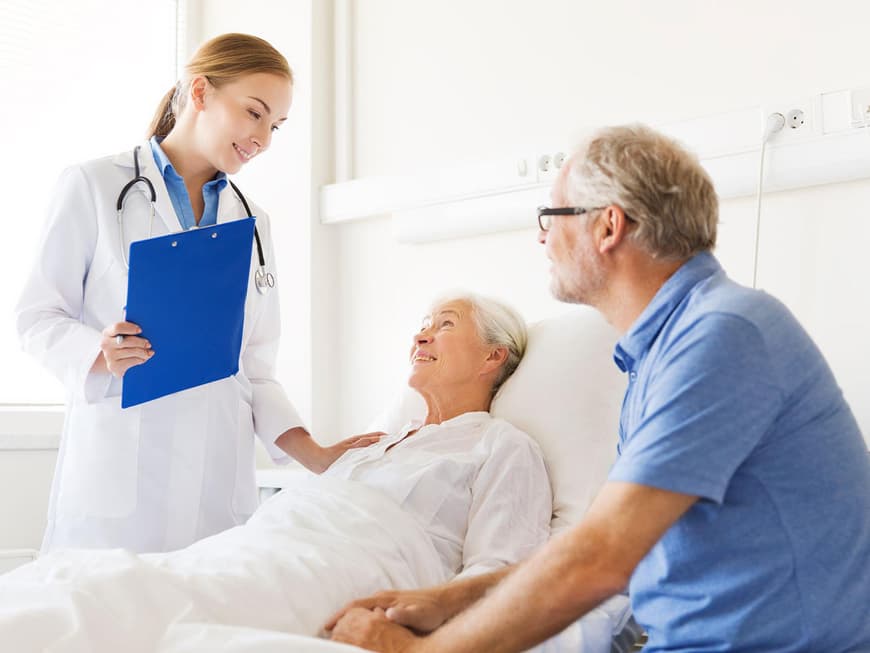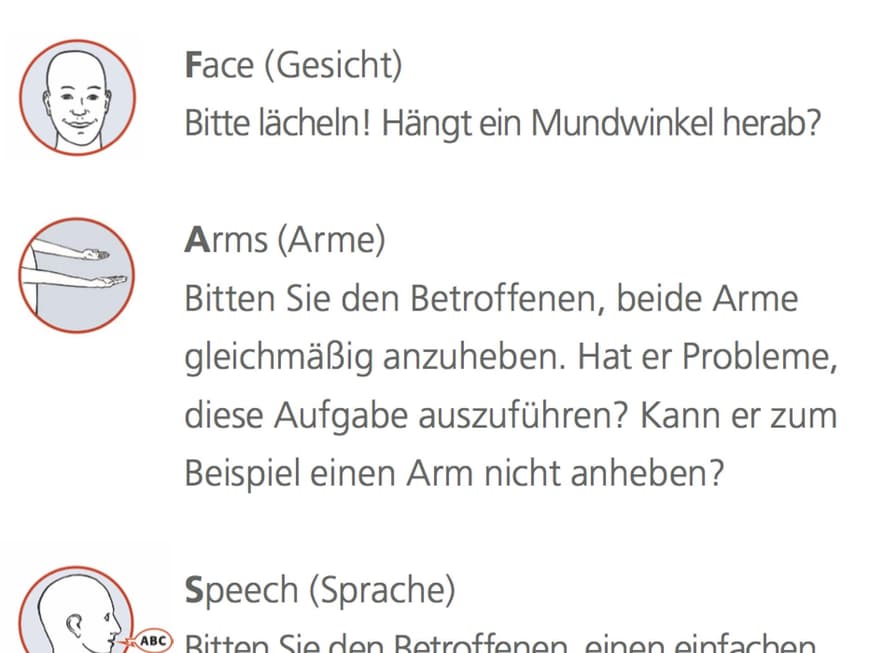
What should I do immediately if I recognize a stroke in another person?
In the event of a stroke, time is of the essence - very important: call 112 immediately. If the person is unconscious, stomach contents can be regurgitated and get into the lungs. To prevent this, they should be placed in the recovery position. It is also important to provide sufficient oxygen - that means: open the window!
How quickly should medical care be provided after a stroke?
Those affected should receive medical care as quickly as possible - therefore, if a stroke is suspected, 112 should be dialed immediately and the emergency doctor called. The more time passes before treatment is received, the more brain cells die. If the cause of the stroke is a blood clot blocking a blood vessel supplying the brain, for example, the first four to five hours after the onset of symptoms are crucial. This is because the blood clot can be dissolved with medication during this period (lysis therapy). This allows the affected areas of the brain to be supplied with oxygen and nutrients again. You could also say that in the acute treatment of a stroke, time equals brain or quality of life. This is because the faster effective treatment takes place, the more brain cells are preserved and the less permanent damage is likely to occur.
Which patient groups have an increased risk of stroke?
The risk of stroke generally depends on individual risk factors. It is important to have your blood sugar, cholesterol and blood pressure checked regularly. This is because diseases that promote a stroke include high blood pressure, diabetes, lipometabolic disorders and cardiac arrhythmias such as atrial fibrillation. You should also make sure you eat a diet rich in vitamins, low in fat and as sugar-free as possible and avoid smoking.
A simple test helps to detect a stroke:

Atrial fibrillation as a risk factor
One in three strokes is caused by atrial fibrillation. Atrial fibrillation is the most common cardiac arrhythmia in Germany, affecting around 1.8 million people. Our expert PD Dr. Späh explains the disease as follows:
In so-called atrial fibrillation, the blood in the atria is not mixed properly. The disturbed blood flow can quickly lead to blood clots. If one of these clots breaks loose, it can block an artery in the brain. One in three strokes is caused in this way. Signs of cardiac arrhythmia can be an irregular pulse (e.g. long - short - short - long - short. . .), shortness of breath, dizziness or a feeling of inner restlessness.
More information on this topic at www.rote-karte-dem-schlaganfall.de
